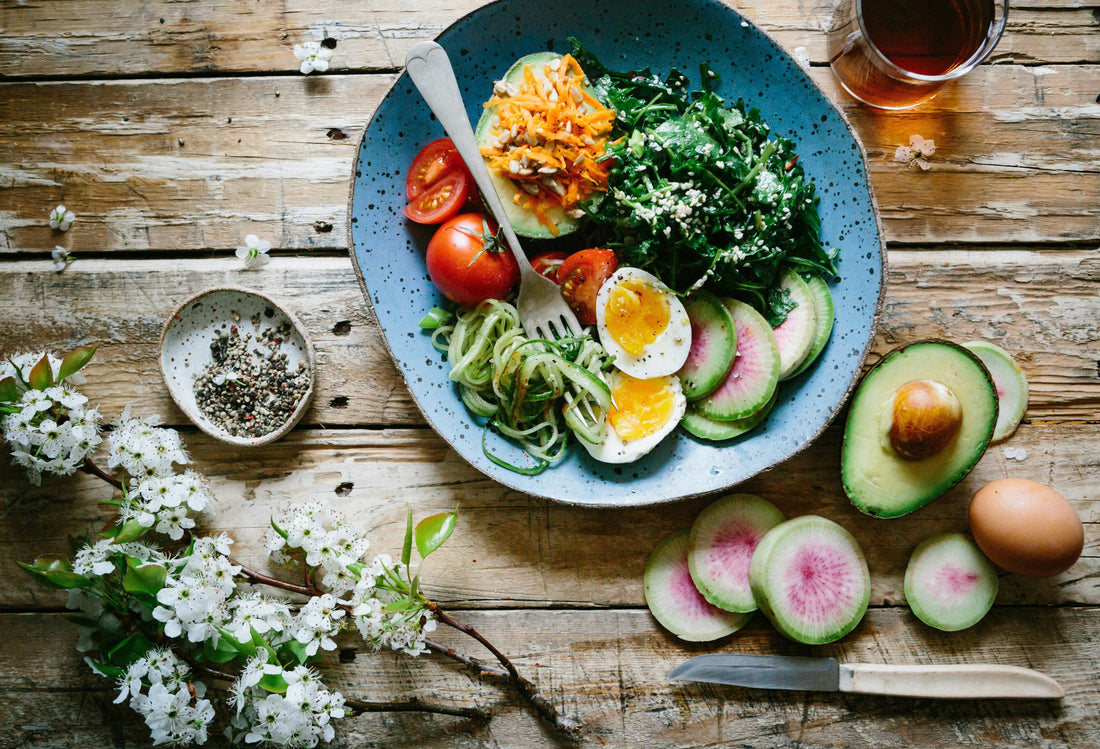Hair growth is a continuous process that evolves over time, much like building any healthy habit. With the right mix of nutrients, a balanced lifestyle, and a little extra care, you can lay the foundation for hair that not only grows but thrives. Below, we’ll explore how to care for your hair from the inside out and build a routine that promotes quicker, healthier hair growth.
1. Feed Your Follicles
Think of your hair like a plant—no matter how much you trim its leaves, it needs nourishing soil to grow strong roots. Your scalp and follicles require essential nutrients to support healthy hair growth. Incorporate protein-rich foods such as lean meats, legumes, and dairy products, which provide the building blocks of keratin, the primary protein in hair. Antioxidant-rich fruits and vegetables, along with healthy fats from avocados, nuts, and seeds, can also improve scalp health and promote stronger hair growth [1].
2. Be Kind to Your Scalp
A healthy scalp is one of the pillars of healthy hair. Research suggests that regular scalp massages can help boost blood circulation, improving the delivery of nutrients to your follicles and promoting hair growth [2]. Apply a nourishing hair oil once or twice a week and gently massage it into your scalp in circular motions.
3. Reduce your Stress Levels
Chronic stress can disrupt the hair growth cycle, leading to increased shedding and slower regrowth. High stress levels elevate cortisol, a hormone that can shorten the hair’s growth phase [3]. Stress-management techniques such as yoga, meditation, and regular exercise can help support hormonal balance and maintain healthy hair growth.
4. Support Your Body as a Whole
Your hair reflects your overall health. Factors such as thyroid function, immune health, and metabolic balance all contribute to hair growth. Research suggests that deficiencies in key nutrients like zinc and B vitamins can impact hair health [4]. Supporting your body with a well-rounded diet, sufficient sleep, and moderate exercise ensures optimal conditions for healthy hair growth.
5. Choose a Supplement That Works Smarter, Not Harder
A targeted hair supplement can provide essential vitamins, minerals, and plant extracts to promote growth. Look for a formula that addresses:
- Stress support: Adaptogens like Shatavari may help manage stress-related hair thinning.
- Female reproductive system health: Hormonal balance is key to reducing hair loss
- Thyroid hormone balance: Iodine and selenium contribute to optimal thyroid function.
- Energy production: B vitamins help sustain energy levels and hair cell turnover.
At VitableLabs, our Hair Growth supplement is specifically designed with 13 key ingredients for holistic hair support. By blending herbal extracts traditionally used in Chinese medicine to promote hair health with clinically studied components like AnaGain™ Nu (shown to reduce hair loss by 34% in just one month), our formula targets hair thinning from multiple angles (5).
6. Stay Consistent and Be Patient
Hair is continuously growing, but it won’t happen overnight. Small, sustainable actions—like eating well-balanced meals and managing your stress levels, add up over time. Just like any meaningful change in your life, healthier, faster-growing hair is the result of consistent care and mindful choices
If you’re looking for a holistic and science-backed approach, consider exploring VitableLabs’ Hair Growth formula. By harnessing both traditional wisdom and modern research, you can support healthier, fuller-looking hair.
If you’re considering a new supplement or have specific health concerns, please consult a healthcare professional for personalised advice.
References
- Lademann, J., Otberg, N., Richter, H., et al. (2009). "Nutritional influence on hair growth and quality." International Journal of Trichology, 1(1), 22-27.
- Koyama, T., et al. (2016). "Scalp massage increases hair thickness by improving blood flow to hair follicles." Dermatology Reports, 8(1), 57-62.
- Hadshiew, I. M., et al. (2004). "Stress and the hair growth cycle." Archives of Dermatological Research, 296(5), 195-203.
- Almohanna, H. M., Ahmed, A. A., Tsatalis, J. P., & Tosti, A. (2019). "The role of vitamins and minerals in hair loss: A review." Dermatology and Therapy, 9(1), 51-70.
- Clinical study on AnaGain™ Nu. Retrieved from: https://www.mibellebiochemistry.com/en/anagain-nu







